In The Community
If you’re curious about astrology or just want to be more in tune with your bruja (witch) side, we bring you a few interesting facts to start your journey. Here 10 astrology facts that will blow your mind and they’re great conversation starters if you want to connect with other astrology enthusiasts:
Astrology is as ancient as it gets
 Photo by Josh Rangel on Unsplash
Photo by Josh Rangel on UnsplashAstrology dates back thousands of years, with the earliest evidence of it dating as far back as the 3rd millennium BCE. Astrology was even an academic discipline across Eurasia until the 17th century. It has evolved significantly since then, but its fundamental principles remain rooted in ancient wisdom. While it’s not a science, its history is fascinating, and the meaning we give it is rich. Remember that the next time a man tries to make you feel silly for liking astrology; he’s just close-minded.
Sun signs vs. Moon signs
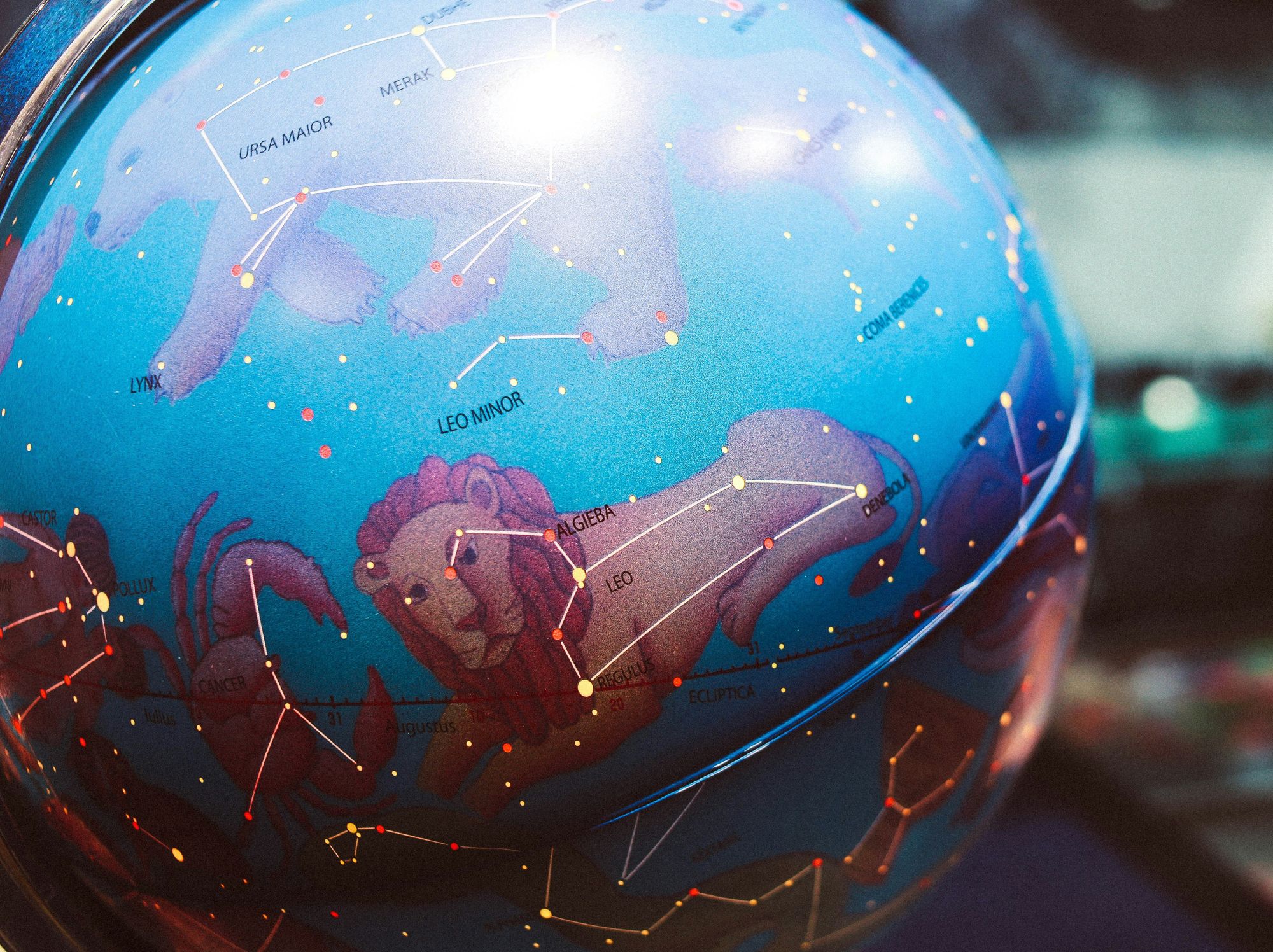 Photo by Nastya Dulhiier on Unsplash
Photo by Nastya Dulhiier on UnsplashWhen you’re just getting into astrology, the difference between your sun sign and your moon sign can seem complicated. It’s actually very simple! The sun sign is determined by the position of the sun at the time you were born. It represents your core identity, ego, and the essence of who you are. Your moon sign is determined by the position of the moon at the time of your birth and it represents your emotions, instincts, and subconscious mind. Together, they allow you to understand your astrological identity a bit better and get more insights out of your interpretations.
Being born between two signs might make you a “cusp”

While astrologers have different interpretations of “cusps”, it’s generally understood as someone who is born between two signs. It doesn’t necessarily mean that you’re a combination of the two signs, though. More often than not, people identify more with one sign than the other, so it’s a matter of assessing and figuring out the sign that speaks to you the most.
Mercury retrograde is not as bad as it may seem

Photo by RidingWithRobots on Flickr
Mercury retrograde is a phenomenon in which the planet Mercury appears to move backward in its orbit. In astrology, this period is often associated with chaos and communication issues, so it’s not advisable to make big life decisions during this time. However, it can be a positive time if you use it to slow down, reflect, reevaluate, repair, and do things like reorganize your space, revisit old places, etc.
The moon can influence your emotions
 Photo by Sanni Sahil on Unsplash
Photo by Sanni Sahil on UnsplashWhen the moon is full, do you notice feeling more sensitive? Especially when it comes to reminiscing about the past. Well, dating back to as early as 400 B.C., scholars attributed this kind of emotional shift to the moon's gravitational pull. The term "lunatic" itself originated from the belief that lunar phases affected mental states. So, maybe keep an eye on moon phases and see how they affect your mood.
Astrological compatibility is a thing

The belief in astrological compatibility is based on the idea that the positions and movements of the Sun, Moon, planets, and stars at the time of our birth can influence our personality and behavior. Based on that, astrologers have determined how compatible signs can be with each other. It’s not a hard rule, but you can find which signs you’re most compatible with and see how that aligns with your experience.
The significance of Saturn returns
 Photo by NASA on Unsplash
Photo by NASA on UnsplashSaturn returns occur approximately every 29.5 years when the planet Saturn completes its orbit around the Sun and returns to the same position it occupied at your birth. This period is often associated with significant life changes, challenges, and opportunities for growth. So, mark it on your calendar if you haven’t because it can be the perfect time for introspection and making a reassessment of your goals for the future.
The importance of transits and progressions
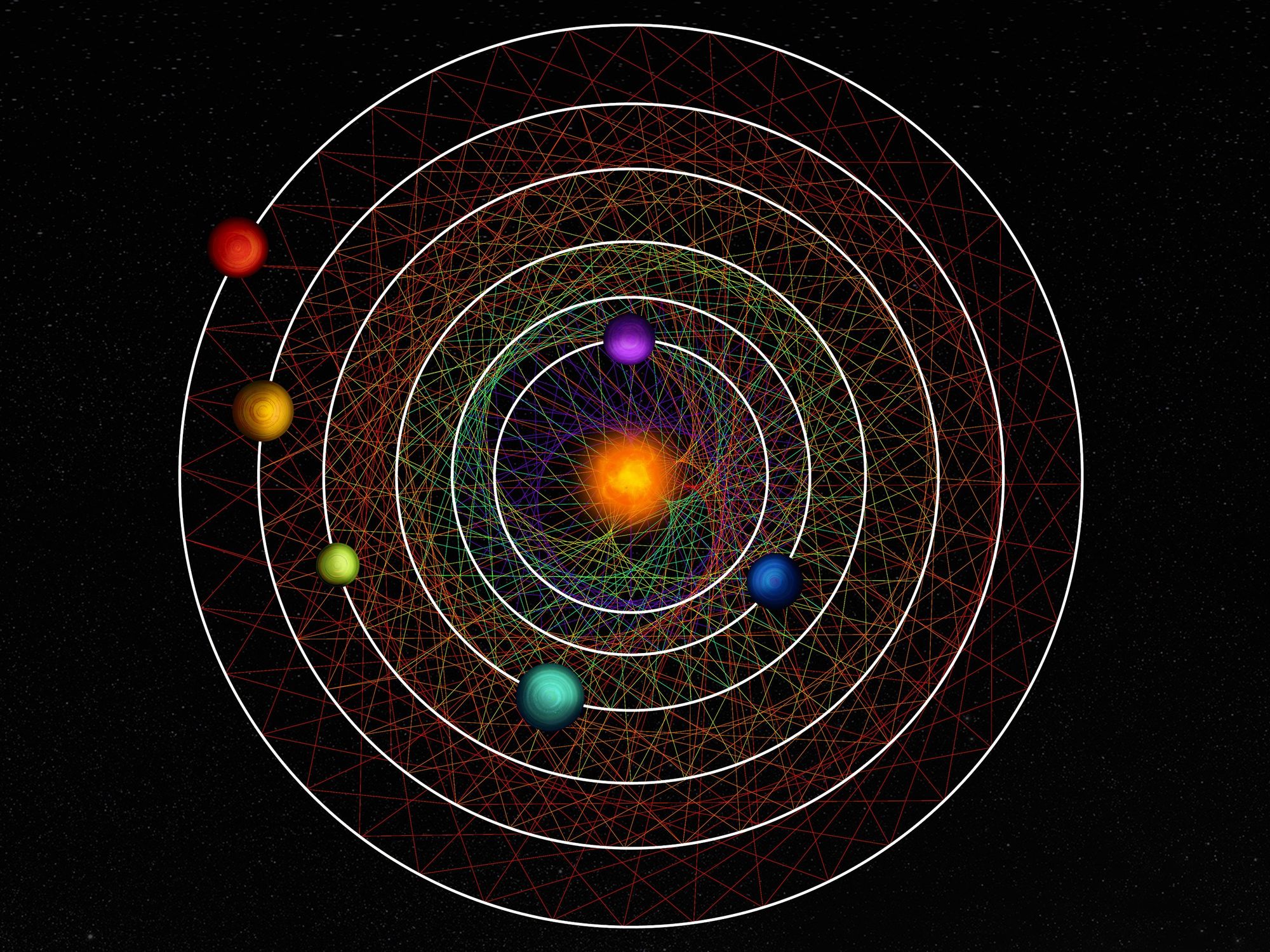
Illustration by Thibaut Roger
Astrology considers transits and progressions to interpret and understand the influence of celestial bodies. Transits look at the position of the planets in relation to your natal chart, while progressions consider the advancing positions of the planets. Transits show the external influences affecting your life, while progressions reveal your internal growth and development over time. Both are essential for understanding the dynamics of your life journey and providing insights.
Astrology has many branches

Astrology isn't just about Sun signs (your typical horoscope). There are many other branches to look into, including natal astrology (analyzing individual birth charts), horary astrology (to answer specific questions), electional astrology (for selecting auspicious times for events), and mundane astrology (which focuses on world events).
It’s not a science, but it’s not useless

While astrology has a dedicated following and has been relevant for millennia, it also has a lot of skeptics who dismiss it as a pseudoscience. Yes, astrology is not a science, but many people find value in it as a tool for self-awareness, personal growth, and understanding of themselves and their connection to the universe. Ultimately, it’s thought-provoking and fun, so there’s no harm in it. Plus, it can help you find your own form of spirituality!
- Mayan Astrology: What are Galactic Numbers? ›
- Embrace Your Inner Bruja: These Mujeres are Redefining and Leading Spiritual Wellness ›
- Intro to Mayan Astrology 101 ›
A solar eclipse of the sun will occur on April 8th, 2024 where it will be visible across Mexico and the United States, from Northern Mexico to Maine. The further South you go, the more visible the solar eclipse will be. The Hill Country of Texas and the Mexican states of Sinaloa, Coahuila, and Durango are the areas that offer the most visibility, but you can still catch the solar eclipse from cities in Texas, Arkansas, Missouri, Indianapolis, Ohio, and New York.
Cities in areas outside of the solar eclipse’s path of totality will still be able to see a percentage of it, from 17 to 63 percent. For example, Southern Californians will see a partial solar eclipse of up to 57% the farther south they are. You can check how much of the solar eclipse you’ll be able to witness on the National Eclipse website.
Whether you catch a total or partial solar eclipse, always ensure safety first - never look directly at the sun! Make sure to follow established guidance for the safest and best eclipse watching. Alternatively, you can tune into live coverage of the solar eclipse on platforms like Hulu and Disney+, or cable channels like ABC, NBC, and CNN.
Solar eclipses are among the most fascinating celestial events surrounded by enormous mystique. For thousands of years, civilizations across the world have interpreted solar eclipses in their own unique ways and integrated them into their religions, culture, and agricultural practices, so it’s no wonder they’re surrounded by myths and mystique. Not to mention solar eclipses also inspire scientific wonder and spirituality.
So what makes solar eclipses so fascinating? We explore.
Total solar eclipses have inspired fear
 Photo by Jongsun Lee on Unsplash
Photo by Jongsun Lee on UnsplashIn ancient times, a total solar eclipse was quite a scary thing to witness and there were many superstitions around it. Many cultures interpreted total solar eclipses as a sign of doom. Some even believed that they represented battles between celestial beings. From the Chippewa tribes shooting flaming arrows to the heavens to ward off disaster to Norse myths about Loki's antics causing eclipses, fear was the most common reaction to total solar eclipses.
Solar eclipses also had romantic interpretations
 Photo by Alejandra Quiroz on Unsplash
Photo by Alejandra Quiroz on UnsplashAt the other end of the spectrum, some cultures weren’t afraid of solar eclipses but actually had romantic interpretations of them. For example, in Australian Aboriginal mythology, the Sun and Moon represented lovers, so a solar eclipse meant that they were coming together. German and Tahitian myths also interpreted solar eclipses as moments of intimacy between celestial partners. That’s much better than the doom and gloom take, in our humble opinion.
Solar eclipses follow predictable cycles
 Photo by Andrew Preble on Unsplash
Photo by Andrew Preble on UnsplashAs it turns out, eclipses can be quite predictable. Every 18 months or so, the Moon will get in the way of the Sun somewhere on Earth. Partial eclipses are the most common, where the Moon only covers a part of the Sun, and we get at least 2 of them per year. Total solar eclipses are the most rare, but they still happen every 2 or 3 years somewhere on Earth. Whether we can observe them or not depends on the location, and most of them happen in remote areas, often over the ocean.
There are different types of solar eclipses
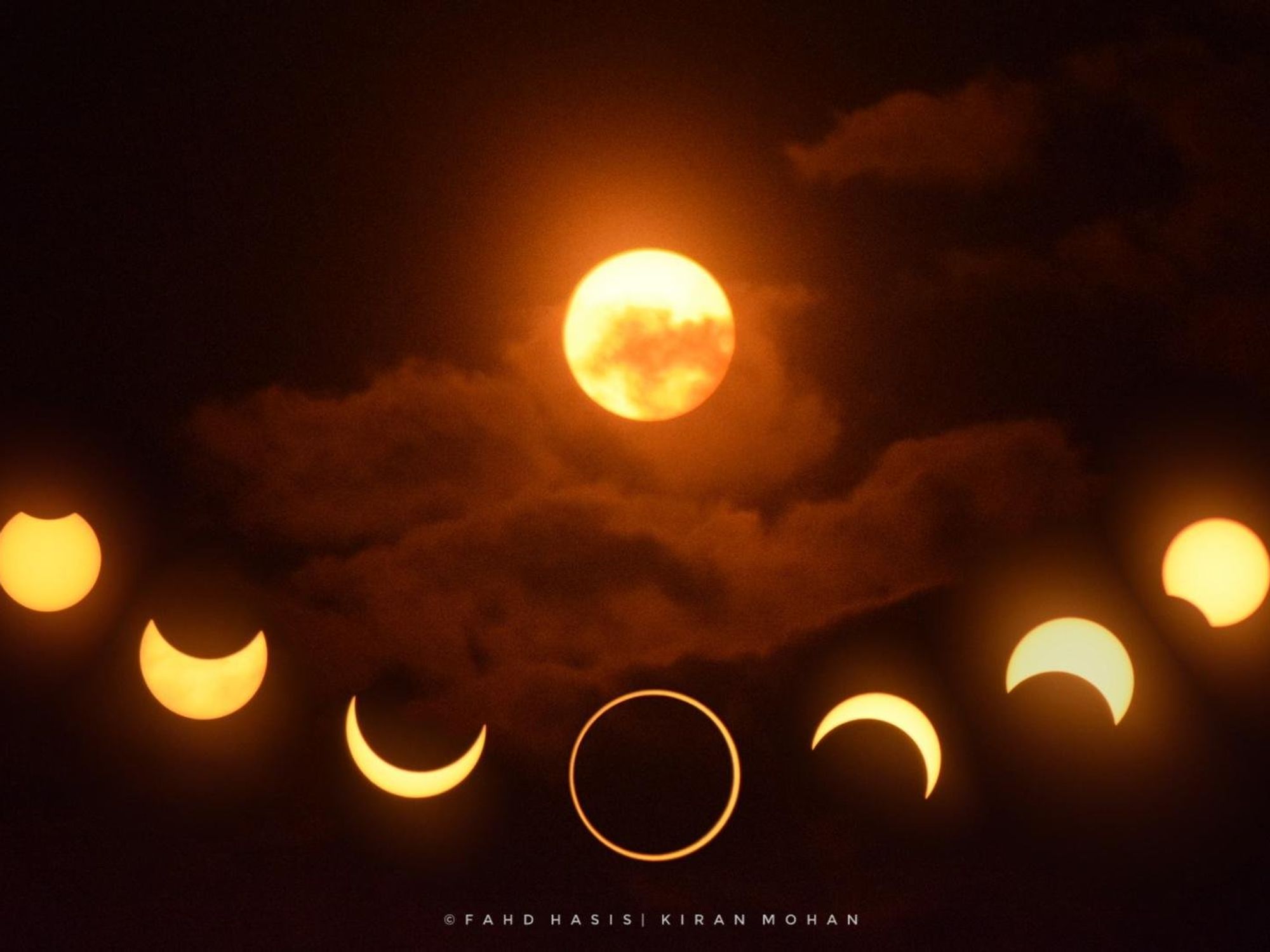
Photo by Fahd Hasis on Wikimedia Commons
Yes, that’s right! There are four types of solar eclipses: total, partial, annular, and hybrid. What makes each of them different is the way the Sun, Moon, and Earth align, though it also depends on the location from where you’re watching. Whatever type of solar eclipse you happen to witness, it will be a unique experience that doesn’t happen very often.
The duration of solar eclipses varies a lot
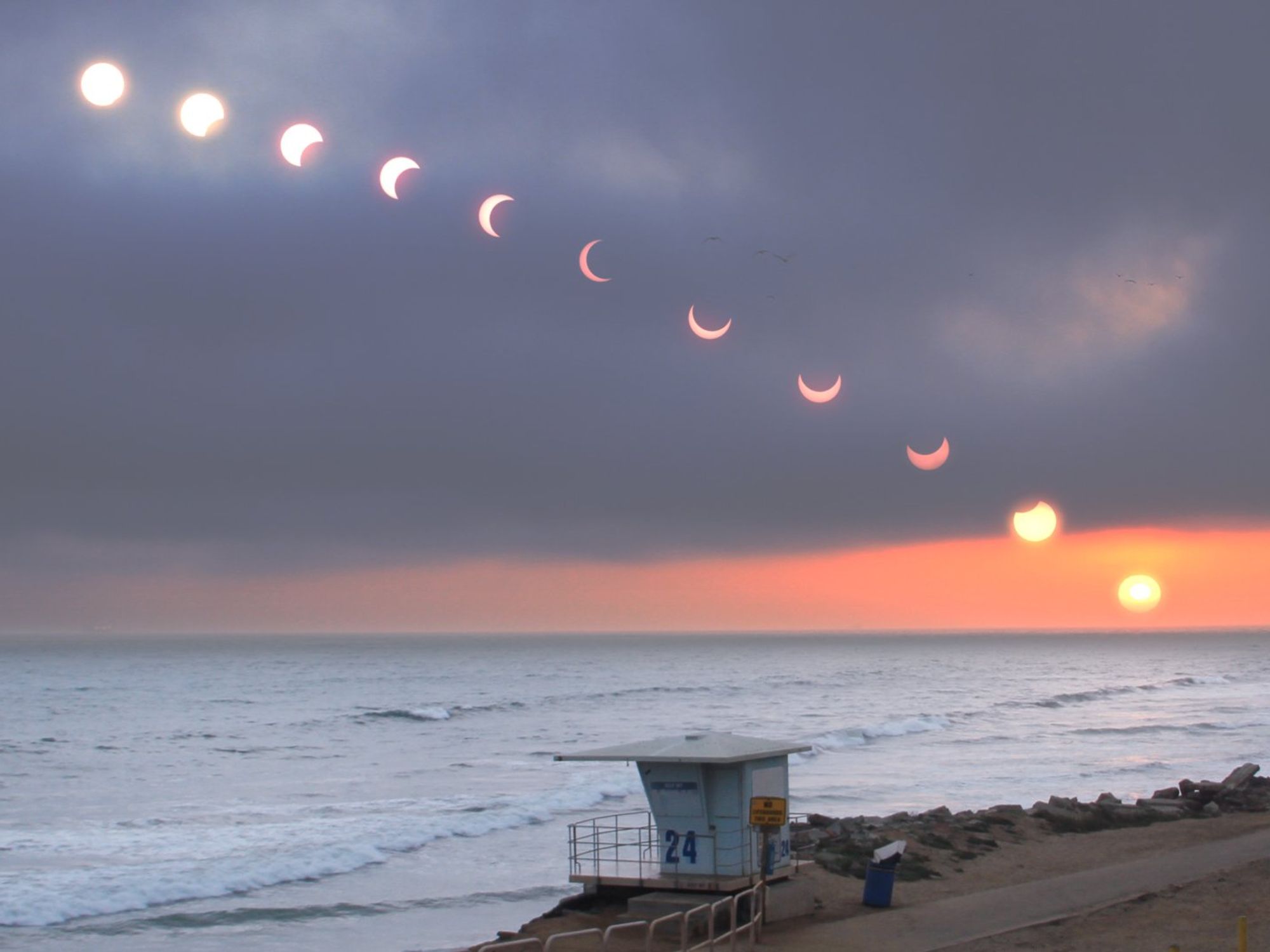
Solar eclipses may be predictable, but it’s very difficult to tell how long they will last. A total solar eclipse usually lasts a few minutes, but in some rare cases, they’ve lasted 7 minutes or more. What’s certain is that even if a solar eclipse only lasts a few seconds, watching its effect and the kind of eerie spectacle that it offers is unforgettable and awe-inspiring.
Solar eclipses have been important throughout history
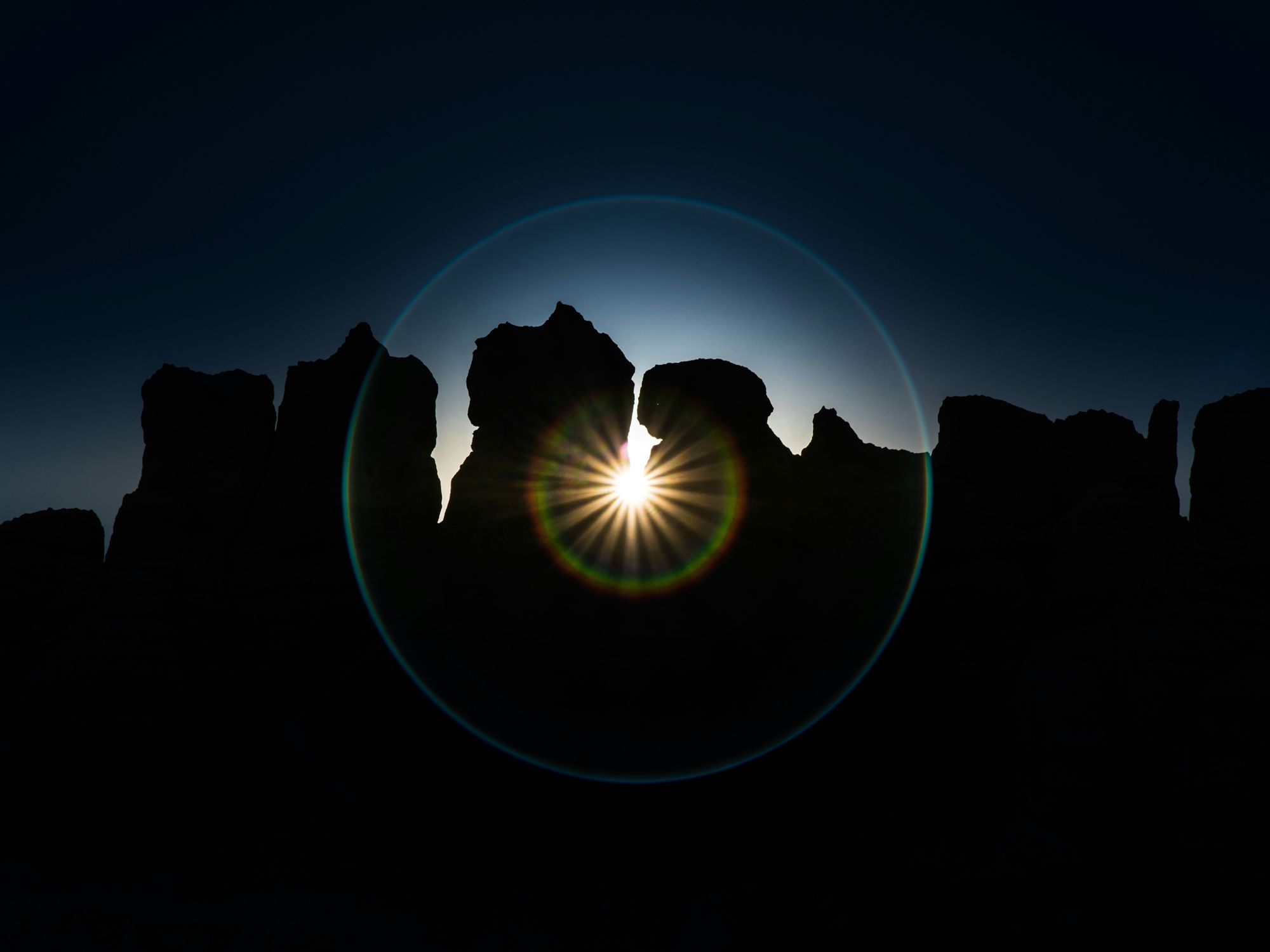 Photo by Patrick Hendry on Unsplash
Photo by Patrick Hendry on UnsplashA surprising thing about solar eclipses is that they’ve left quite a mark on history. Why? Because they’ve altered certain events in unexpected ways. For example, the ancient Battle of Halys, which is known as the Battle of the Eclipse, was actually interrupted by a sudden solar eclipse in 585 BCE. Eclipses have been shaping history in very interesting ways, so it’s fun to look back and see how they’ve led to certain outcomes.
Solar eclipses offer valuable scientific insights
 Photo by Jaredd Craig on Unsplash
Photo by Jaredd Craig on UnsplashSolar eclipses not only have cultural significance, they’re also invaluable in the scientific community. For example, solar eclipses have helped researchers observe the outer atmosphere of the Sun, which has helped to expand our understanding of solar physics. Solar eclipses offer amazing opportunities to uncover more knowledge, so they’re exciting events for scientists studying the nature of space.
Solar eclipses offer moments for introspection
 Photo by freestocks on Unsplash
Photo by freestocks on UnsplashIf you’re into astrology and spiritual wellness, solar eclipses are important moments to look out for. They’re considered to be times of intense energy, making them great moments for introspection and release. They’re also interpreted as times of profound change and transformation, so if you’ve been carrying something for a while, solar eclipses are an invitation to relax, let go, and embrace the new.
They’re ripe for personal reflection
 Photo by Sage Friedman on Unsplash
Photo by Sage Friedman on UnsplashWhether you go all out and watch solar eclipses through a telescope or just watch from your balcony, the moment is perfect for personal reflection and meditation. Solar eclipses can have quite a contemplative effect, so they can be deeply spiritual experiences. They invite us to pause and reflect on our place in the universe, and we can find a lot of meaning in that. Especially in times when we feel disconnected from everything.
Solar eclipses can affect animals
 Photo by Lindz Marsh on Unsplash
Photo by Lindz Marsh on UnsplashIf you have pets, you should keep an eye on them during a solar eclipse because it can cause some animals to be confused. This effect can be easily observed in birds. They will stop singing or tuck themselves away to sleep because they think it’s nighttime, and this can also happen with certain mammals! It’s nothing to worry about, just don’t be surprised if your pets start acting like it’s bedtime during a solar eclipse.
- Latinos and Extraterrestrial Life: A Cosmic Connection? ›
- American Tourists Block Locals in Mexico from Eclipse Watch - Luz Media ›
- 2025 Lunar New Year: What the Wood Snake Means for You - Luz Media ›
Every once in a while, people and situations can test us. Whether you believe in the chaotic energy of mercury retrograde or not, there does tend to be something about this time that gets people a little collectively frazzled. Despite all of this, and as much as sometimes you’d like to, you can’t just go around throwing hands (or chanclas for that matter), so it’s important to learn to find our zen. The good news is that there are plenty of ways to find your zen in any situation, planetary influence or not.
Take deep breaths
 Photo by Motoki Tonn on Unsplash
Photo by Motoki Tonn on UnsplashTake a moment to practice deep breathing. It’s well-established science that the act of deep breathing activates your body's relaxation response. Inhale deeply through your nose, hold for a few seconds, and exhale slowly through your mouth. Repeat several times to calm your nerves and find your center before you snap. Deep breathing is one of the most simple yet underrated things you can do to effectively get from 100 back to zero (or as close to zero as you can get to, depending on the situation!).
Count to ten then back to zero
 Photo by Darius Bashar on Unsplash
Photo by Darius Bashar on UnsplashJust like deep breathing, this may sound too simple or silly to work, but it does. Counting to ten and back down to zero can give you a moment to pause and regain control of your emotions, which can make the difference between a rash decision and taking the high road. Take slow, deliberate breaths as you count, allowing yourself to calm down before you figure out what to do next.
Use positive self-talk to ground yourself
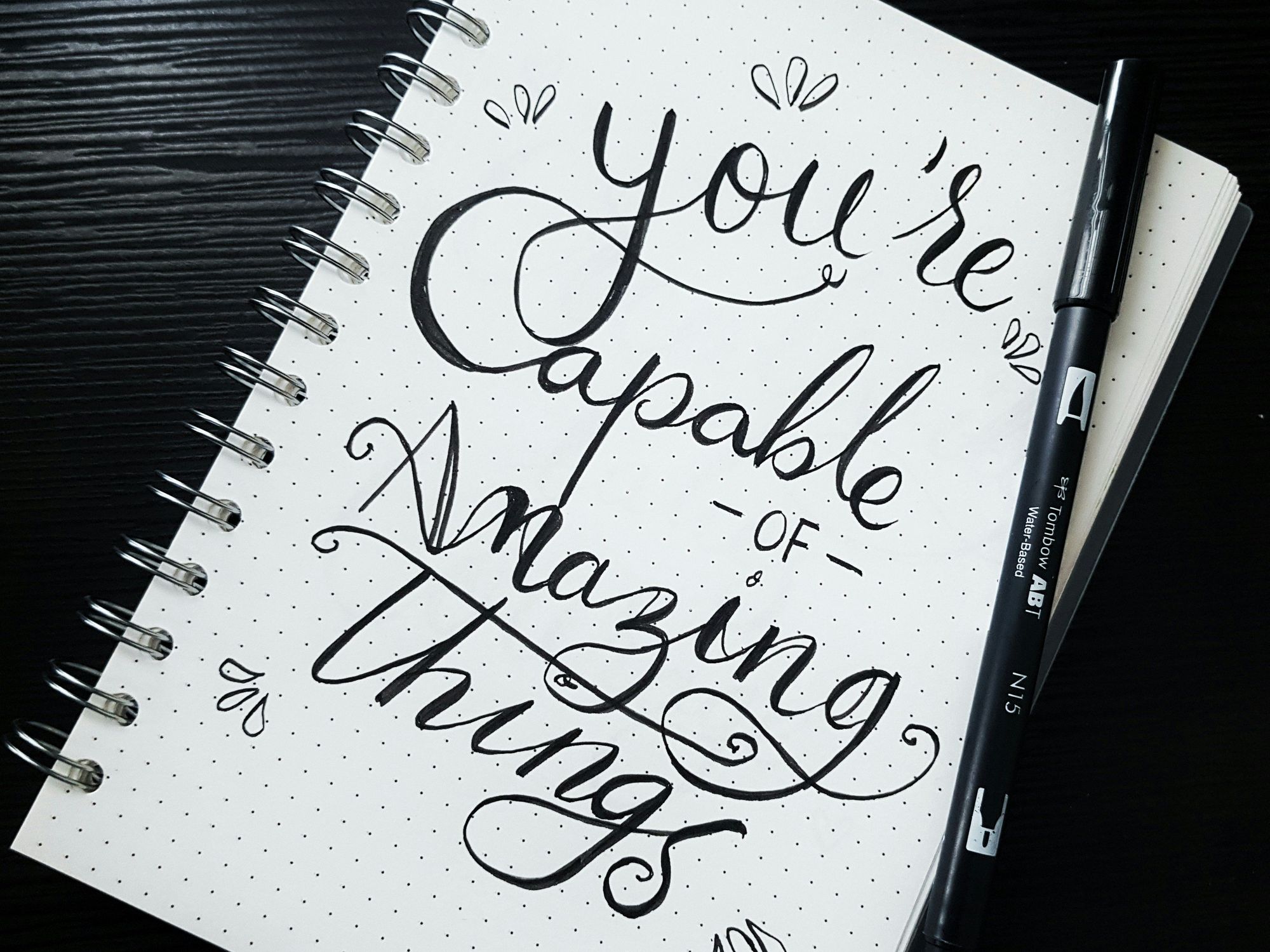 Photo by Alysha Rosly on Unsplash
Photo by Alysha Rosly on UnsplashWhen you feel like you’re at your wit’s end, it’s easy to be swept away by negative thoughts. Instead of doing that, use positive self-talk to ground yourself. Reassuring statements like "I can handle this calmly" or "I choose to respond with patience and understanding" can pull you from the edge, shift your mindset, and reduce anxiety.
Focus on the present moment
 Photo by Omid Armin on Unsplash
Photo by Omid Armin on UnsplashOne way to stop your emotions from escalating quickly is to bring your attention to the present moment. If you focus on the thing that’s testing your patience, you’ll just unravel. Especially because the future is usually not within your control - only the present moment is. Instead, use your surroundings to ground yourself. An easy exercise to help with this is to give yourself things to find. For example, look for all the blue objects in the room. This simple task will distract you enough to calm down, and then you can figure out how to respond to what’s happening.
Use visualization
 Photo by Jernej Graj on Unsplash
Photo by Jernej Graj on UnsplashVisualization can be a powerful tool to find your zen, but you have to imagine positive outcomes. It’s tempting to imagine other outcomes, we know, but do your best to visualize a positive resolution to what you’re dealing with. This will help you not only reduce feelings of anger and the desire to throw chanclas, but also come up with a more peaceful approach to solve the issue at hand.
Practice muscle relaxation
 Photo by Dane Wetton on Unsplash
Photo by Dane Wetton on UnsplashYour fight or flight system is activated during stressful situations. Tensing up is the first thing that happens to our bodies when we get angry or feel negative emotions because your body is ready to react to what it perceives as a potentially dangerous situation. This tension builds up, which is why you feel the urge to do something physical to release it. To avoid that, practice muscle relaxation. Just purposefully tense your muscle groups and then relax. Besides helping to release the tension in your body, it also helps you recognize where you store your stress. When you actively shrug your shoulders, for example, hold, then release, you realize that you were already shrugging your shoulders without even knowing it.
Listen to calming music
 Photo by Jordan Whitfield on Unsplash
Photo by Jordan Whitfield on UnsplashIf you have the chance to excuse yourself for a moment, this is another easy way to find your zen. Putting on headphones and listening to soothing music or nature sounds can bring your emotions down. Music has a powerful effect on mood, so it can be a quick way to focus away from any anger or frustration you may be feeling. Then, you can face the situation with a cool head.
Remove yourself from the situation
 Photo by Emma Simpson on Unsplash
Photo by Emma Simpson on UnsplashSometimes, you won’t have the space to allow yourself to find your zen. In that case, the best thing you can do is to remove yourself from the situation and find the space you need. Take a step back and go to another room or find a quiet space to collect your thoughts and emotions, and practice any of the strategies we’ve discussed so far.
Take a moment to meditate
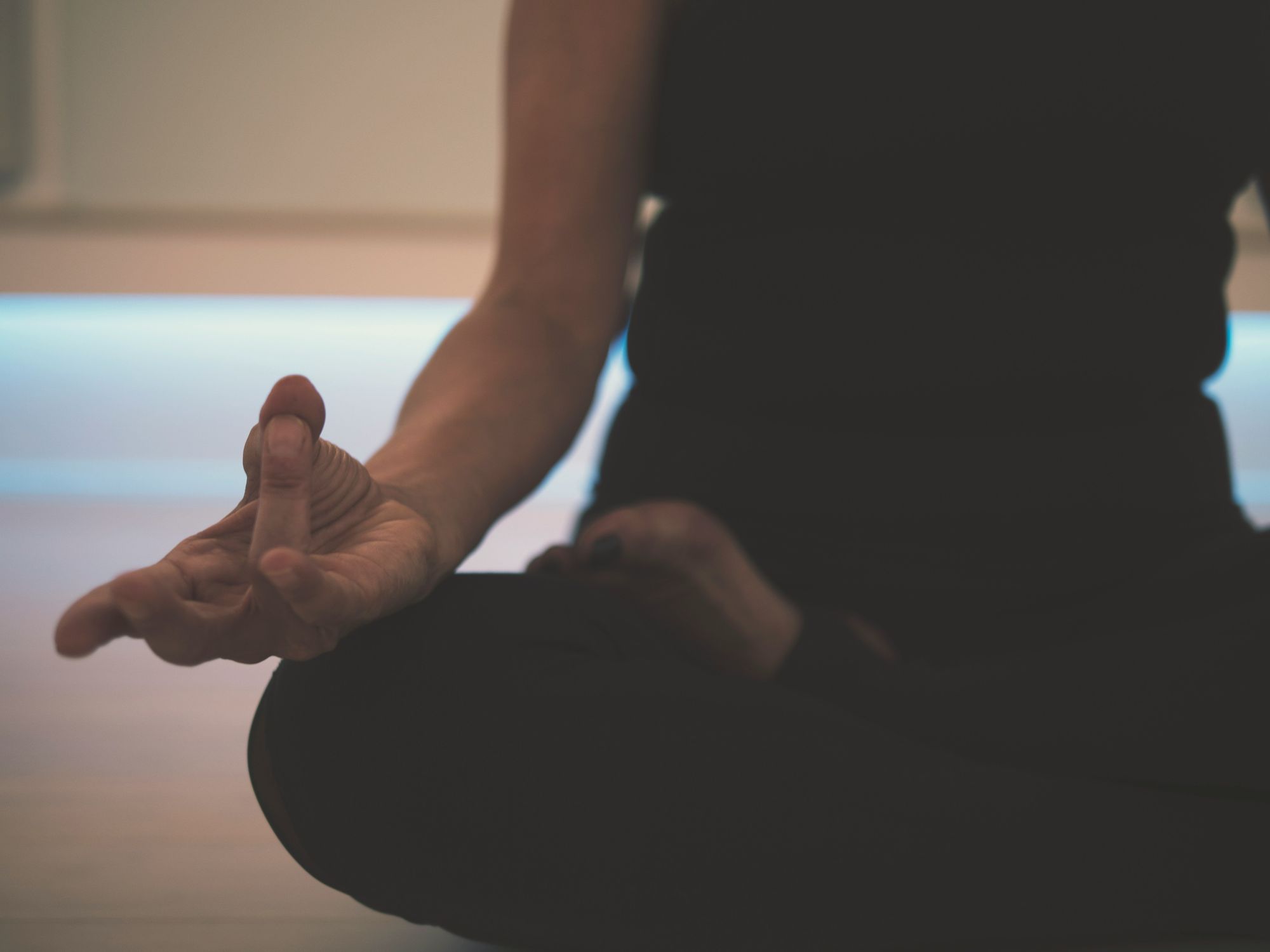 Photo by JD Mason on Unsplash
Photo by JD Mason on UnsplashAnother great thing you can do is to take a moment to meditate. This won’t be possible in every situation, but if you can take a moment to do that, it will be incredibly helpful. Meditation will allow you to observe your thoughts and emotions without judgment, which is an effective way to avoid impulsive reactions. There are hundreds of apps, videos, and audio files that offer guided meditations for free.
Seek support if you need it
 Photo by Priscilla Du Preez 🇨🇦 on Unsplash
Photo by Priscilla Du Preez 🇨🇦 on UnsplashSometimes, we can’t process things on our own. If you feel like that’s the kind of situation you’re dealing with, finding your zen will help, but you’ll also need to find someone to provide support and guidance. That’s where your support system comes in! Reach out to a trusted friend or family member and talk to them. If you need professional help, this resource list in the Luz Community can help you. There are many free resources available. This will help you unburden yourself while also getting much-needed perspective to tackle the issue in a healthy way.
Remember that throwing hands (or chanclas) can feel like the most satisfying solution, but it’s really not. Try these strategies to help you choose healthy outlets that will ultimately help avoid escalating any situation and making it worse.




